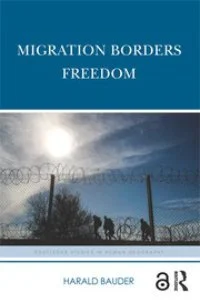Edited by Dirk Hoerder and Nora Faires
Presenting an unprecedented, integrated view of migration in North America, this interdisciplinary collection of essays illuminates the movements of people within and between Canada, the Caribbean, Mexico, and the United States over the past two centuries. Several essays discuss recent migrations from Central America as well. In the introduction, Dirk Hoerder provides a sweeping historical overview of North American societies in the Atlantic world. He also develops and advocates what he and Nora Faires call “transcultural societal studies,” an interdisciplinary approach to migration studies that combines migration research across disciplines and at the local, regional, national, and transnational levels. The contributors examine the movements of diverse populations across North America in relation to changing cultural, political, and economic patterns.
Durham, NC: Duke University Press, 2011. 458p.











